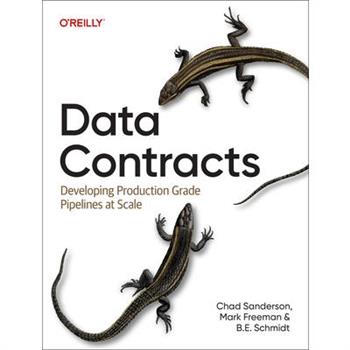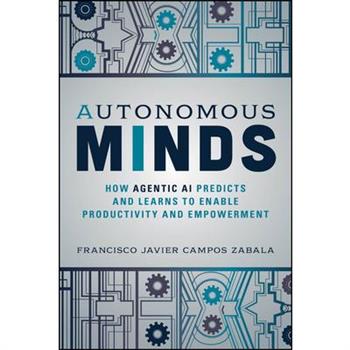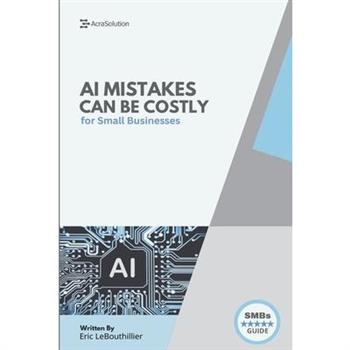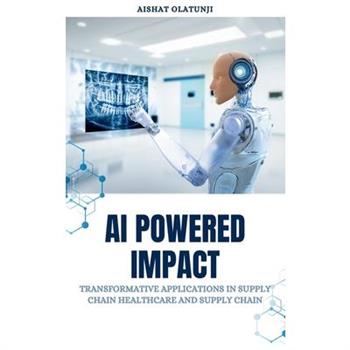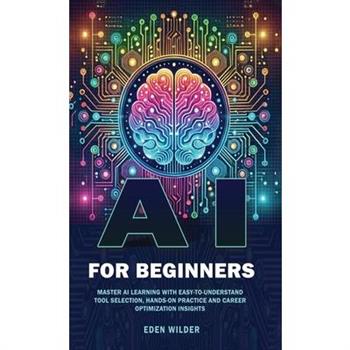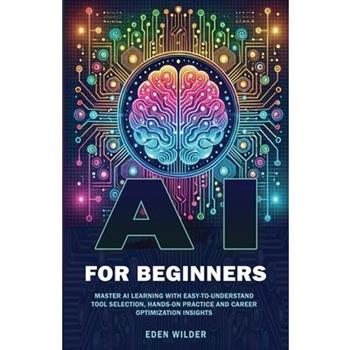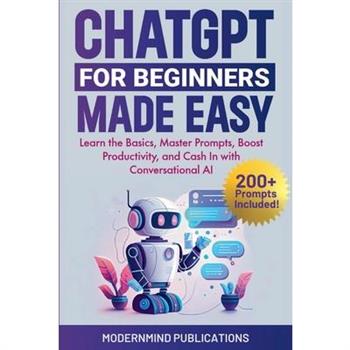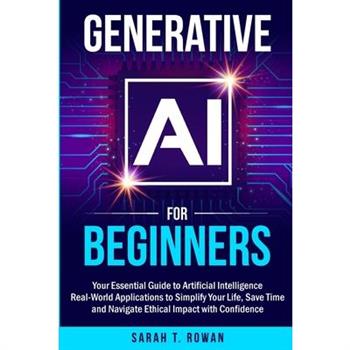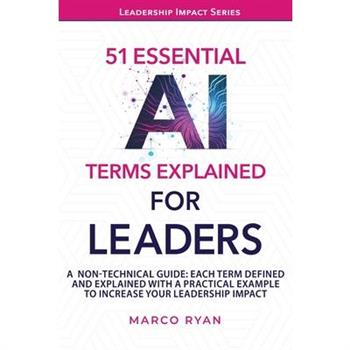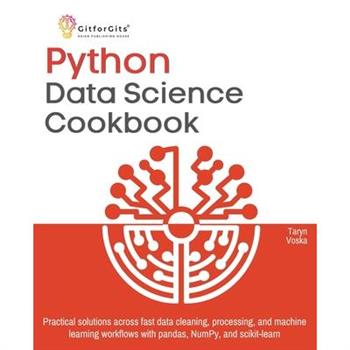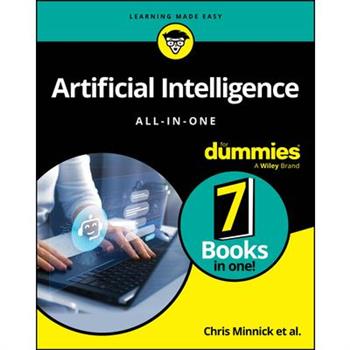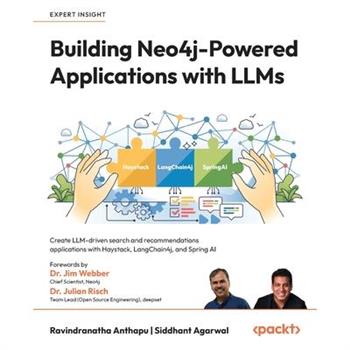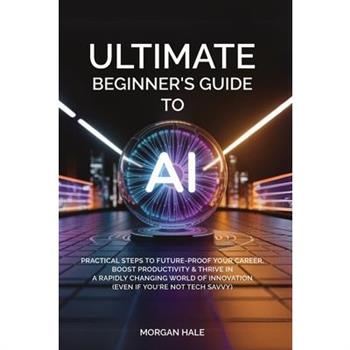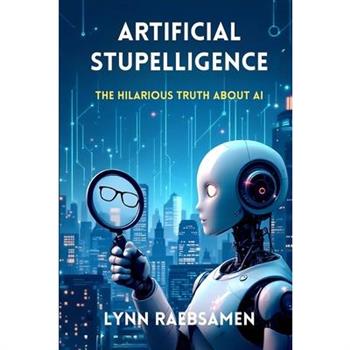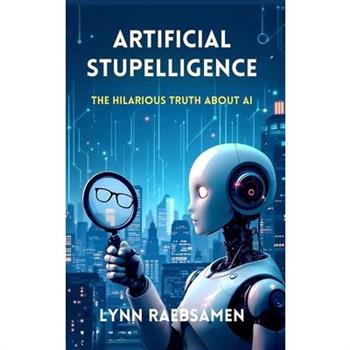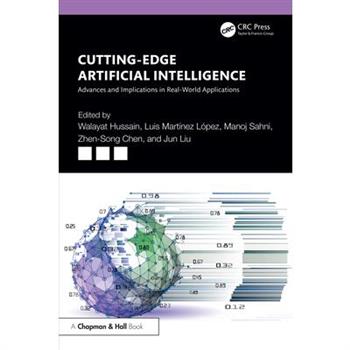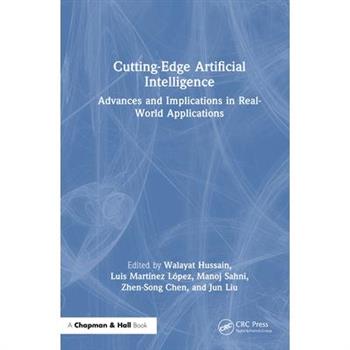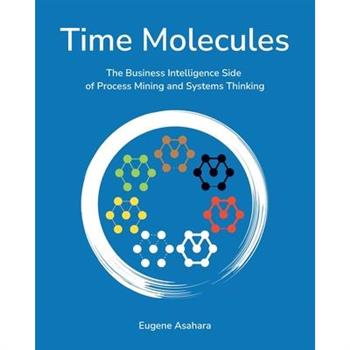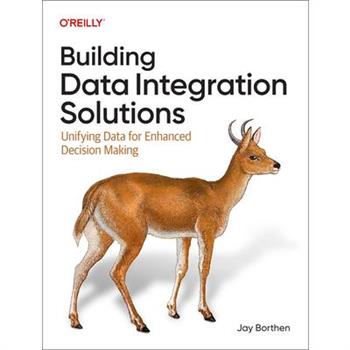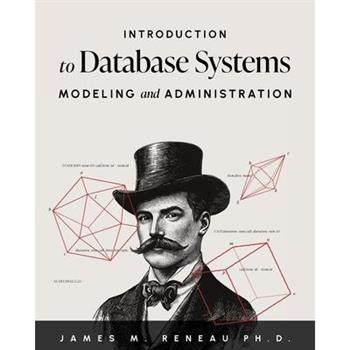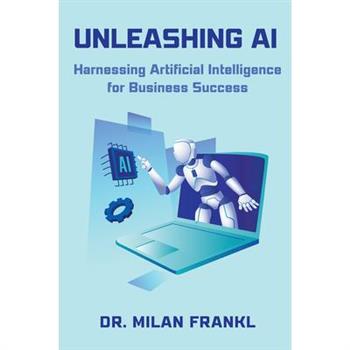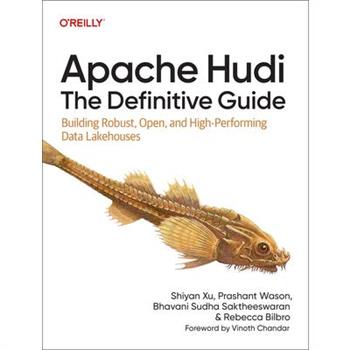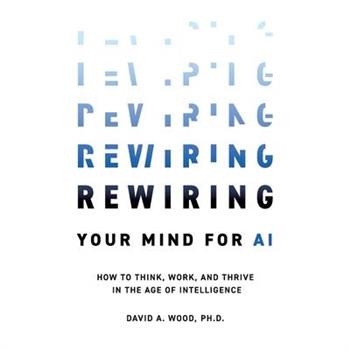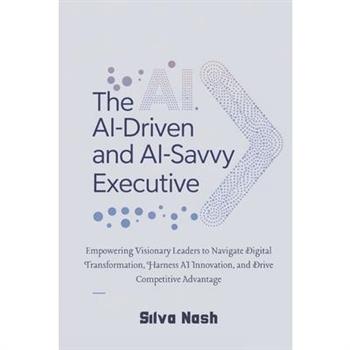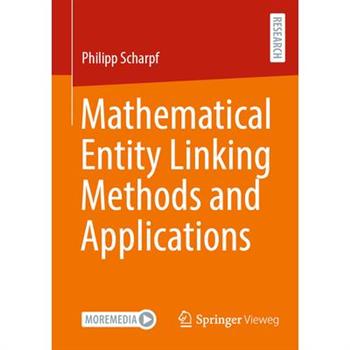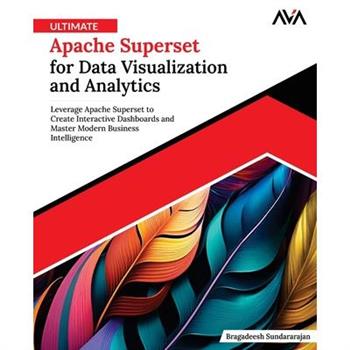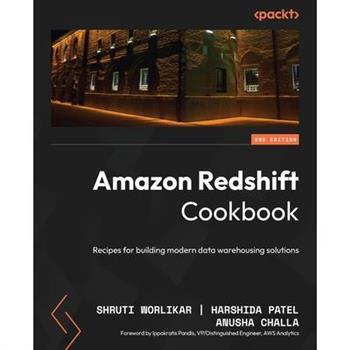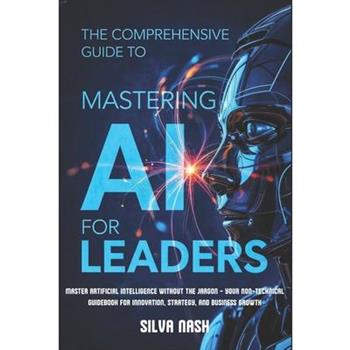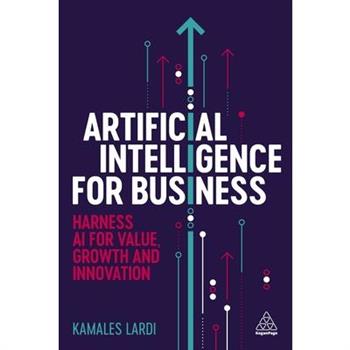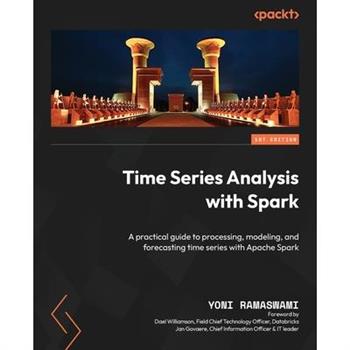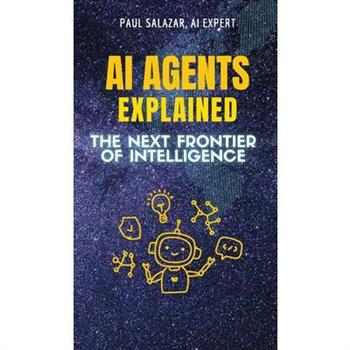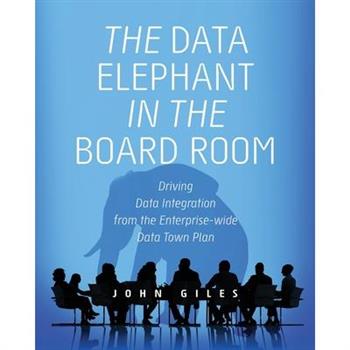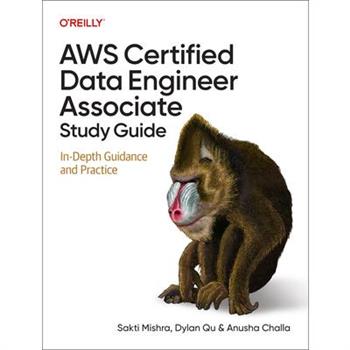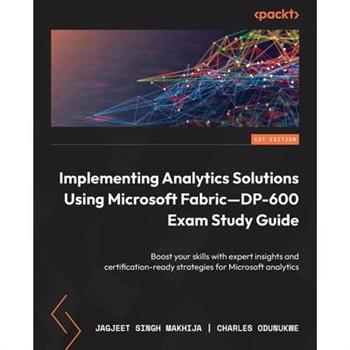Data Contracts
Poor data quality can cause major problems for data teams, from breaking revenue-generating data pipelines to losing the trust of data consumers. Despite the importance of data quality, many data teams still struggle to avoid these issues--especially when their data is sourced from upstream workflows outside of their control. The solution: data contracts. Data contracts enable high-quality, well-governed data assets by documenting expectations of the data, establishing ownership of data assets, and then automatically enforcing these constraints within the CI/CD workflow. This practical book introduces data contract architecture with a clear definition of data contracts, explains why the data industry needs them, and shares real-world use cases of data contracts in production. In addition, you'll learn how to implement components of the data contract architecture and understand how they're used in the data lifecycle. Finally, you'll build a case for implementing data contracts in your organization. Authors Chad Sanderson, Mark Freeman, and B.E. Schmidt will help you: Explore real-world applications of data contracts within the industry Understand how to apply each component of this architecture, such as CI/CD, monitoring, version control data, and more Learn how to implement data contracts using open source tools Examine ways to resolve data quality issues using data contract architecture Measure the impact of implementing a data contract in your organization Develop a strategy to determine how data contracts will be used in your organization
Ths Sqinks Journal
A writer's journey through grief. The Sqinks Journal. Rucker's notes on losing his wife, writing his SF novel SQINKS, and finding love once more. Sadr and happy, both. With a master's insights into his craft. Most of the book is in the form of a journal of writing notes, with frequent speculations about where the story is going. In some ways the novel is like an autobiography, with a character who is living the author's life. The entries are personal, and often funny. It's a writer's life seen from the inside. Sqinks is transreal cyberpunk love story. I use the my word "transreal" to refer to SF tales that mirror the author's own life. That is to say, the novel is about Rudy. Throughout the novel, the narrator is trying to finish writing. And to find a way to publish it. A writer's life indeed!
Autonomous Minds
A book that combines a technical explanation of agentic AI with the latest practical applications In Autonomous Minds: How Agentic AI Predicts and Learns to Enable Productivity and Empowerment, technology leader Francisco Javier Campos Zabala delivers a comprehensive, first principles analysis of AI agents and their potentially transformative impact on society, business, and individual lives. The book helps non-technical readers make sense of the technological complexity of artificial intelligence and explains its current practical applications. Campos Zabala offers a clear and accessible explanation of these new technologies, walking you through practical frameworks for implementing AI agents in business and personal contexts. Inside the book: Expert insights from leading researchers and practitioners in AI Accessible introductions to the fundamentals of agentic AI, as well as advanced applications Hands-on guidance for professionals attempting to adapt to AI-driven change Perfect for managers, executives, and other business leaders, Autonomous Minds is an essential guide for all professionals doing their best to make sense of new agentic AI technologies.
Data Governance with Unity Catalog on Databricks
Organizations collecting and using personal data must now heed a growing body of regulations, and the penalties for noncompliance are stiff. The ubiquity of the cloud and the advent of generative AI have only made it more crucial to govern data appropriately. Thousands of companies have turned to Databricks Unity Catalog to simplify data governance and manage their data and AI assets more effectively. This practical guide helps you do the same. Databricks data specialists Kiran Sreekumar and Karthik Subbarao dive deep into Unity Catalog and share the best practices that enable data practitioners to build and serve their data and AI assets at scale. Data product owners, data engineers, AI/ML engineers, and data executives will examine various facets of data governance--including data sharing, auditing, access controls, and automation--as they discover how to establish a robust data governance framework that complies with regulations. Explore data governance fundamentals and understand how they relate to Unity Catalog Utilize Unity Catalog to unify data and AI governance Access data efficiently for analytics Implement different data protection mechanisms Securely share data and AI assets internally and externally with Delta Sharing
AI Mistakes That Could Cost You Everything
AI Mistakes That Could Cost You Everything: Avoid the Critical Errors That Put Your Business, Data, and Reputation at RiskArtificial Intelligence is no longer on the horizon-it's here, woven into everyday business operations from marketing and HR to finance, legal, and customer service. The problem? Most companies are adopting AI without understanding the hidden risks. What looks like innovation can quickly turn into financial loss, compliance violations, reputational damage, and even lawsuits.In AI Mistakes That Could Cost You Everything, cybersecurity strategist Eric LeBouthillier delivers a practical, no-nonsense guide to the 10 most dangerous AI mistakes businesses make-and how to avoid them before it's too lateDrawing from real-world cases across small businesses and large enterprises, this book reveals how seemingly harmless choices-like trusting AI output without oversight or pasting sensitive data into public tools-can snowball into disasters. More importantly, it shows you the tactical fixes, policies, and safeguards you can put in place today to protect your team and your reputation.✅ Inside, you'll learn how to: Spot the red flags of untrustworthy AI output before it damages your business.Prevent data leaks and compliance violations when using public AI platforms.Build a clear AI governance policy to guide your team's usage.Avoid the dangers of unchecked automation in hiring, lending, pricing, and support.Stop publishing AI-generated content without QA that could expose you to legal or brand risks.Detect and reduce bias and inaccuracy that creep into AI-driven decisions.Shine a light on shadow AI-unauthorized tools quietly spreading across teams.Set smarter limits on chatbots and virtual agents so customers get empathy, not robotic frustration.Vet your AI vendors with security and compliance checklists.Create a recovery plan for inevitable AI failures so you can respond quickly and protect trust.✅ Real-World Case StudiesEvery chapter includes concrete examples: an AI-generated financial report that misled investors, a leaked internal memo that surfaced in another user's query, biased loan approvals that triggered lawsuits, and botched customer service exchanges that went viral on social media. These stories show exactly what went wrong, what it cost, and how it could have been prevented.
Providing Integrity, Awareness, and Consciousness in Distributed Dynamic Systems
The ideas of this book originate from the mobile WAVE approach which allowed us, more than a half century ago, to implement citywide heterogeneous computer networks and solve distributed problems on them well before the internet. The invented paradigm evolved into Spatial Grasp Technology and resulted in a European patent and eight books. The volumes covered concrete applications in graph and network theory, defense and social systems, crisis management, simulation of global viruses, gestalt theory, collective robotics, space research, and related concepts. The obtained solutions often exhibited high system qualities like global integrity, distributed awareness, and even consciousness. This current book takes these important characteristics as primary research objectives, together with the theory of patterns covering them all. This book is oriented towards system scientists, application programmers, industry managers, defense and security commanders, and university students (especially those interested in advanced MSc and PhD projects on distributed system management), as well as philosophers, psychologists, and United Nations personnel.
AI Powered Impact
Artificial intelligence is rewriting the rules of two fundamental pillars of modern society: global supply chains and healthcare delivery. This book offers a clear-eyed examination of how intelligent systems are moving from experimental projects to operational backbones in these critical sectors. Through concrete examples and implementation insights, it reveals the realities of AI adoption where it matters most in hospital networks making life-saving decisions and distribution systems that keep economies moving.The narrative balances technological potential with practical execution challenges. Readers will discover how machine learning models adapt to volatile supply conditions while maintaining ethical procurement practices, or how natural language tools extract clinical insights without compromising patient privacy. The discussion extends beyond algorithms to address the human factors that determine success training workforces to collaborate with AI systems, designing interfaces that enhance rather than replace human judgment, and creating governance frameworks for high-stakes environments.For professionals navigating either sector, this work provides a strategic perspective on building AI solutions that endure. It explores how to assess infrastructure readiness, prioritize use cases with measurable impact, and scale pilot programs into enterprise-wide transformations. The analysis acknowledges sector-specific realities, from healthcare's regulatory complexities to supply chain's unpredictable variables, while demonstrating how thoughtful AI integration creates competitive advantage.At its core, this book is about sustainable implementation intelligent systems that evolve alongside organizational needs, technical architectures that balance innovation with reliability, and leadership strategies that align technological capabilities with mission-critical outcomes. In an era where both supply chains and healthcare systems face unprecedented demands, these pages offer neither hype nor skepticism, but a responsible path forward.
AI for Beginners
Master AI fundamentals faster than you ever thought possible, even if you are new to tech!Are you eager to unlock the potential of AI but overwhelmed by the sheer volume of information out there? Do you want to harness AI to boost your career, but feel daunted by technical jargon?AI for Beginners is the key to demystifying AI and unlocking your potential to use AI wisely and resourcefully.Here's a glimpse of what you'll find inside: The essentials to kick-start your AI journey without an advanced tech background.Discover AI tools that are suited for beginners and why they work.A guide blending theory and practice for a balanced understanding.How AI can transform everyday challenges into solutions with practical implementations.An exploration of how AI is transforming sectors from healthcare to education.How to stay updated on the latest AI trends with minimal time investment.Discover how artificial intelligence could shape industries, societies, and the global economy in the years to come.With this book, you won't just learn AI; you'll understand how to apply it in real-world contexts and make it a powerful element of your personal and professional development.
AI for Beginners
Master AI fundamentals faster than you ever thought possible, even if you are new to tech!Are you eager to unlock the potential of AI but overwhelmed by the sheer volume of information out there? Do you want to harness AI to boost your career, but feel daunted by technical jargon?AI for Beginners is the key to demystifying AI and unlocking your potential to use AI wisely and resourcefully.Here's a glimpse of what you'll find inside: The essentials to kick-start your AI journey without an advanced tech background.Discover AI tools that are suited for beginners and why they work.A guide blending theory and practice for a balanced understanding.How AI can transform everyday challenges into solutions with practical implementations.An exploration of how AI is transforming sectors from healthcare to education.How to stay updated on the latest AI trends with minimal time investment.Discover how artificial intelligence could shape industries, societies, and the global economy in the years to come.With this book, you won't just learn AI; you'll understand how to apply it in real-world contexts and make it a powerful element of your personal and professional development.
ChatGPT for Beginners Made Easy
Unlock Your Potential with ChatGPT - No Tech Expertise Required!Whether you're brand new to ChatGPT or already experimenting with AI and ready to level up, ChatGPT for Beginners Made Easy gives you the tools, prompts, and workflows to turn curiosity into confidence-and turn AI into a powerful asset in your daily life.This practical, beginner-friendly guide is designed for real-world results: save time, get more done, and build a skill you can actually monetize.What You'll Learn: Get started fast: Learn to use ChatGPT in under 30 minutesWrite better prompts: Craft powerful, reusable prompts that work across AI platformsPlan goals, projects, and your day: Build personal productivity workflows with ChatGPTLearn and solve problems: Research, study, and work through real-world challengesWrite with AI: Plan, draft, and revise content more efficientlyAutomate your workflows: Build your own custom GPTs for recurring tasksBoost productivity: Save time on everything from email to brainstormingMake money with AI: Explore over 10 beginner-friendly monetization strategiesStart strong: Includes 200+ free prompts to get you going immediatelyThis book strips away the complexity and shows you how to actually use AI-clearly, quickly, and with confidence.By the end, you'll have: A streamlined system to get more done in less timeA practical skill set you can monetize in multiple waysThe ability to adapt to future AI tools with easeReady to simplify AI and unlock what it can do for you?
Generative AI for Beginners
Want to turn AI into your secret weapon for success, but have no idea how to begin?Your barrier isn't technical-it's communication. No one has taught you how to speak AI's language. Until now.This is the guide that finally teaches you how to communicate effectively with AI, empowering you to get the results you want-no tech degree required.In these pages, you'll discover: AI fundamentals decoded-Technical complexity translated into everyday language.The Perfect AI Toolkit-Match the right AI tools to specific tasks, with hands-on exercises in every chapter.The Art of the Perfect Prompt-The conversational skill that transforms AI from a frustrating novelty into a powerful ally.A Balanced Perspective-Where AI excels and where your human judgment remains irreplaceable.Ethical AI Without the Paralysis-Balance powerful capabilities with responsible usage.BONUS: 140+ term AI glossary, 160 ready-to-use prompts, links to 60+ AI tools.Transform hours into minutes, ideas into reality, and eliminate the "tech skill gap". The AI revolution won't wait, and neither should you.
51 Essential AI Terms Explained For Leaders
Do you want to increase your Impact as a Leader and Lead with enhanced Digital Authority? Are you tired of feeling left behind in conversations about Artificial Intelligence and technology? The author's experience with AI in government, academia, and business is unparalleled. Marco Ryan, the former Chief Digital Officer for BP and currently a Cyber Leader in Residence at a leading UK Business School, has over 25 years of Digital and AI Leadership experience with companies such as BP, W瓣rtsil瓣, and Accenture. From his thesis in the mid1990s on Neural Networks to his work today advising CEOs and Boards of major multi-nationals, Marco specializes in making the world of Cyber simple, jargon-free, and easy to understand for Leaders, even if those Leaders have no background in technology or IT.Each term is arranged alphabetically making it easy to find, with a formal definition, then a simple jargon-free explanation and then a real-life example.So, even if you are pushed for time or feel that you are not tech-savvy enough to understand AI topics or that books on technology become outdated too quickly then, this book will make it simple to learn and enhance your impact at work
Reversible Computation
This book constitutes the refereed proceedings of the 17th International Conference on Reversible Computation, RC 2025, held in Odense, Denmark, during July 3-4, 2025. The 7 full papers and 5 short papers included in this book were carefully reviewed and selected from 22 submissions.The conference brought together researchers from computer science, mathematics, engineering, and physics to discuss new developments and directions for future research in the area of Reversible Computation.
Edge Intelligence in Cyber-Physical Systems
Edge Intelligence in Cyber-Physical Systems: Foundations and Applications provides a comprehensive overview of best practices for building edge intelligence into cyber-physical systems. This book covers the foundations and applications of synergizing machine learning at the edge of CPS, leveraging an edge computing infrastructure. Divided into four parts, the first section of the book reviews the foundations, principles, and representative application domains of CPS. The second part covers machine learning, edge computing, and their needs in CPS, defining edge intelligence and its principles, challenges, and research directions. The third part presents tutorials and foundational research works on realizing edge intelligence in representative CPS. The fourth part explores the problem space of threats and countermeasures in building edge intelligence into CPS. Researchers, graduate students and professionals in computer science, data science, and electrical engineering will find this to be a valuable resource on the principles and applications of edge intelligence in cyber-physical systems as well as the development of interdisciplinary techniques to advance the field.
Python Data Science Cookbook
This book's got a bunch of handy recipes for data science pros to get them through the most common challenges they face when using Python tools and libraries. Each recipe shows you exactly how to do something step-by-step. You can load CSVs directly from a URL, flatten nested JSON, query SQL and NoSQL databases, import Excel sheets, or stream large files in memory-safe batches.Once the data's loaded, you'll find simple ways to spot and fill in missing values, standardize categories that are off, clip outliers, normalize features, get rid of duplicates, and extract the year, month, or weekday from timestamps. You'll learn how to run quick analyses, like generating descriptive statistics, plotting histograms and correlation heatmaps, building pivot tables, creating scatter-matrix plots, and drawing time-series line charts to spot trends. You'll learn how to build polynomial features, compare MinMax, Standard, and Robust scaling, smooth data with rolling averages, apply PCA to reduce dimensions, and encode high-cardinality fields with sparse one-hot encoding using feature engineering recipes.As for machine learning, you'll learn to put together end-to-end pipelines that handle imputation, scaling, feature selection, and modeling in one object, create custom transformers, automate hyperparameter searches with GridSearchCV, save and load your pipelines, and let SelectKBest pick the top features automatically. You'll learn how to test hypotheses with t-tests and chi-square tests, build linear and Ridge regressions, work with decision trees and random forests, segment countries using clustering, and evaluate models using MSE, classification reports, and ROC curves. And you'll finally get a handle on debugging and integration: fixing pandas merge errors, correcting NumPy broadcasting mismatches, and making sure your plots are consistent.Key LearningsYou can load remote CSVs directly into pandas using read_csv, so you don't have to deal with manual downloads and file clutter.Use json_normalize to convert nested JSON responses into simple tables, making it a breeze to analyze.You can query relational and NoSQL databases directly from Python, and the results will merge seamlessly into Pandas.Find and fill in missing values using IGNSA(), forward-fill, and median strategies for all of your data over time.You can free up a lot of memory by turning string columns into Pandas' Categorical dtype.You can speed up computations with NumPy vectorization and chunked CSV reading to prevent RAM exhaustion.You can build feature pipelines using custom transformers, scaling, and automated hyperparameter tuning with GridSearchCV.Use regression, tree-based, and clustering algorithms to show linear, nonlinear, and group-specific vaccination patterns.Evaluate models using MSE, R簡, precision, recall, and ROC curves to assess their performance.Set up automated data retrieval with scheduled API pulls, cloud storage, Kafka streams, and GraphQL queries.Table of ContentData Ingestion from Multiple SourcesPreprocessing and Cleaning Complex DatasetsPerforming Quick Exploratory AnalysisOptimizing Data Structures and PerformanceFeature Engineering and TransformationBuilding Machine Learning PipelinesImplementing Statistical and Machine Learning TechniquesDebugging and TroubleshootingAdvanced Data Retrieval and Integration
Artificial Intelligence All-In-One for Dummies
A comprehensive roadmap to using AI in your career and in your life Artificial intelligence is everywhere. Major software organizations like Microsoft, Google, and Apple have built AI directly into products and invited the world to become part of the AI revolution. And it's impossible to use these tools to their fullest potential without understanding the basics of what AI is and what it can do. Artificial Intelligence All-in-One For Dummies compiles insight from the expert authors of AI books in the For Dummies series to provide an easy-to-follow walkthrough for anyone interested in learning how to use AI. You'll learn how to put artificial intelligence to work for you and your company in a wide variety of situations, from creating office assistants to managing projects and marketing your products. Inside the book: How to prompt AI platforms like ChatGPT and Copilot while avoiding "hallucinations" and other bugs Strategies for adding artificial intelligence tools to your company's existing workflows to improve efficiency and generate new opportunities Techniques to improve your programming capabilities with AI or create new AI-powered tools Perfect for professionals curious about the potential and pitfalls associated with generative artificial intelligence, Artificial Intelligence All-in-One For Dummies shows you exactly how AI works and how you can apply it in your own professional and personal life.
Dataproc Cookbook
Want to build big data solutions in Google Cloud? Dataproc Cookbook is your hands-on guide to mastering Dataproc and the essential GCP fundamentals--like networking, security, monitoring, and cost optimization--that apply across Google Cloud services. Learn practical skills that not only fast-track your Dataproc expertise, but also help you succeed with a wide range of GCP technologies. Written by data experts Narasimha Sadineni and Anu Venkataraman, this cookbook tackles real-world use cases like serverless Spark jobs, Kubernetes-native deployments, and cost-optimized data lake workflows. You'll learn how to create ephemeral and persistent Dataproc clusters, run secure data science workloads, implement monitoring solutions, and plan effective migration and optimization strategies. Create Dataproc clusters on Compute Engine and Kubernetes Engine Run data science workloads on Dataproc Execute Spark jobs on Dataproc Serverless Optimize Dataproc clusters to be cost effective and performant Monitor Spark jobs in various ways Orchestrate various workloads and activities Use different methods for migrating data and workloads from existing Hadoop clusters to Dataproc
Building Neo4j-Powered Applications with LLMs
A comprehensive guide to building cutting-edge generative AI applications using Neo4j's knowledge graphs and vector search capabilitiesKey Features: - Design vector search and recommendation systems with LLMs using Neo4j GenAI, Haystack, Spring AI, and LangChain4j- Apply best practices for graph exploration, modeling, reasoning, and performance optimization- Build and consume Neo4j knowledge graphs and deploy your GenAI apps to Google Cloud- Purchase of the print or Kindle book includes a free PDF eBookBook Description: Embark on an expert-led journey into building LLM-powered applications using Retrieval-Augmented Generation (RAG) and Neo4j knowledge graphs. Written by Ravindranatha Anthapu, Principal Consultant at Neo4j, and Siddhant Agrawal, a Google Developer Expert in GenAI, this comprehensive guide is your starting point for exploring alternatives to LangChain, covering frameworks such as Haystack, Spring AI, and LangChain4j.As LLMs (large language models) reshape how businesses interact with customers, this book helps you develop intelligent applications using RAG architecture and knowledge graphs, with a strong focus on overcoming one of AI's most persistent challenges-mitigating hallucinations. You'll learn how to model and construct Neo4j knowledge graphs with Cypher to enhance the accuracy and relevance of LLM responses.Through real-world use cases like vector-powered search and personalized recommendations, the authors help you build hands-on experience with Neo4j GenAI integrations across Haystack and Spring AI. With access to a companion GitHub repository, you'll work through code-heavy examples to confidently build and deploy GenAI apps on Google Cloud.By the end of this book, you'll have the skills to ground LLMs with RAG and Neo4j, optimize graph performance, and strategically select the right cloud platform for your GenAI applications.What You Will Learn: - Design, populate, and integrate a Neo4j knowledge graph with RAG- Model data for knowledge graphs- Integrate AI-powered search to enhance knowledge exploration- Maintain and monitor your AI search application with Haystack- Use LangChain4j and Spring AI for recommendations and personalization- Seamlessly deploy your applications to Google Cloud PlatformWho this book is for: This LLM book is for database developers and data scientists who want to leverage knowledge graphs with Neo4j and its vector search capabilities to build intelligent search and recommendation systems. Working knowledge of Python and Java is essential to follow along. Familiarity with Neo4j, the Cypher query language, and fundamental concepts of databases will come in handy.Table of Contents- Introducing LLMs, RAGs, and Neo4j Knowledge Graphs- Demystifying RAG- Building a Foundational Understanding of Knowledge Graph for Intelligent Applications- Building Your Neo4j Graph with Movies Dataset- Implementing Powerful Search Functionalities with Neo4j and Haystack- Exploring Advanced Knowledge Graph Capabilities- Introducing the Neo4j Spring AI and LangChain4j Frameworks for Building Recommendation Systems- Constructing a Recommendation Graph with H&M Personalization Dataset- Integrating LangChain4j and SpringAI with Neo4j- Creating an Intelligent Recommendation System- Choosing the Right Cloud Platform for GenAI Applications- Deploying your Application on Cloud- Epilogue
Ultimate Beginner’s Guide to AI
Future-proof your career with AI-no tech skills required.Feeling overwhelmed by the complexity of artificial intelligence? Worried about how it might impact your job?Afraid you're already falling behind the competition? This practical, empowering guide is designed for professionals like you: ambitious, curious, and eager to stay ahead, even if you're not a "tech person." In Ultimate Beginner's Guide to AI, you'll find a clear, jargon-free path to understanding and applying artificial intelligence in your career and daily life. Whether you're in marketing, healthcare, education, business, or any other field, this book will show you how to confidently embrace the tools and ideas shaping tomorrow.Inside, you'll discover: The essential building blocks of AI, machine learning, and natural language processing.More than 200 sample prompts to explore the range and power of AI.Practical exercises that let you apply AI knowledge immediately, enhancing your learning experience.How to integrate AI into your workflow for increased productivity without needing a tech background.The best AI tools you can start using today to improve both personal and professional efficiency.Strategies for leveraging AI to drive career growth and secure your future in a tech-driven world.How to start learning AI with no technical background and still achieve success.The ethical considerations of AI and how they impact both the workplace and society at large.Time-efficient learning modules designed for busy adults, so you can learn at your own pace.Exclusive downloadable resources that provide additional support and deepen your understanding.How to connect with a community of AI learners, creating a supportive network around your new skills. ...and much more!You don't need to be a data scientist or software engineer. You just need a willingness to learn-and a few minutes a day. Whether you want to boost your productivity, explore new career paths, or simply understand the tech shaping your future, this guide is your practical starting point.
Artificial Stupelligence
Who said learning to use AI couldn't be funny?Artificial Stupelligence: The Hilarious Truth About AI is the perfect pick for anyone curious about artificial intelligence, but tired of dry textbooks and overstated media hype.Authored by Lynn Raebsamen, CFA, a finance expert with deep roots in technology and a global career guiding businesses through digital transformation-this book offers a refreshingly honest, laugh-out-loud look at the strange, brilliant, and often ridiculous world of AI.From self-driving cars that mistake stop signs for speed limits to voice assistants that accidentally order dollhouses, Raebsamen pulls back the curtain on today's most powerful technologies in all industries with wit and insight.Each chapter dives into real-world examples of AI gone haywire, paired with clear explanations of how these systems actually work, and why they sometimes fail in such spectacular fashion.Whether you're an AI skeptic, a curious beginner, or a tech-savvy reader looking for a smart, sarcastic ride through modern innovation, this book delivers both substance and humor.Covering everything from facial recognition fails to chatbot meltdowns, Artificial Stupelligence makes complex topics accessible and unforgettable. If you've ever screamed at Siri, rolled your eyes at a robo-advisor, or wondered whether AI is really all it's cracked up to be, this one's for you.Grab your copy and prepare to laugh-learn.
Artificial Stupelligence
Who said learning to use AI couldn't be funny?Artificial Stupelligence: The Hilarious Truth About AI is the perfect pick for anyone curious about artificial intelligence, but tired of dry textbooks and overstated media hype.Authored by Lynn Raebsamen, CFA, a finance expert with deep roots in technology and a global career guiding businesses through digital transformation-this book offers a refreshingly honest, laugh-out-loud look at the strange, brilliant, and often ridiculous world of AI.From self-driving cars that mistake stop signs for speed limits to voice assistants that accidentally order dollhouses, Raebsamen pulls back the curtain on today's most powerful technologies in all industries with wit and insight.Each chapter dives into real-world examples of AI gone haywire, paired with clear explanations of how these systems actually work, and why they sometimes fail in such spectacular fashion.Whether you're an AI skeptic, a curious beginner, or a tech-savvy reader looking for a smart, sarcastic ride through modern innovation, this book delivers both substance and humor.Covering everything from facial recognition fails to chatbot meltdowns, Artificial Stupelligence makes complex topics accessible and unforgettable. If you've ever screamed at Siri, rolled your eyes at a robo-advisor, or wondered whether AI is really all it's cracked up to be, this one's for you.Grab your copy and prepare to laugh-learn.
Optimum Python Power Series IV
Unlocking the Power of Data Science: Mastering Models, Algorithms, and Core Intuition!Welcome to the "OPTIMUM Python Power Series IV," where we embark on an exciting exploration of the vast potential of data science through the mastery of models, algorithms, and core intuition. In this book, we will delve into the world of data science, uncovering the remarkable capabilities that enable us to analyse, visualise, and derive insights from data.Python has revolutionised the landscape of data science, providing an extensive array of tools and functionalities that streamline intricate tasks and empower data scientists to address real-world challenges. From data manipulation and preprocessing to statistical analysis, machine learning, and data visualisation, Python offers the building blocks that form the foundation of modern data science workflows."OPTIMUM Python Power Series IV" serves as your comprehensive guidebook to mastering machine learning and harnessing its full potential. Get ready to embark on an exhilarating journey as we delve into the world of data science, mastering models, algorithms, and core intuition. This book is your ultimate guide to unlocking the immense power and potential of Python in the field of data science. Comprehensive RoadmapIn this book, we have meticulously curated a comprehensive roadmap that will take you through the intricacies of approaching data science projects using various models. We believe that Python is not just a programming language but a gateway to a multitude of tools and resources that empower you to tackle complex data challenges with ease and efficiency.With "OPTIMUM Python Power Series IV" as your trusted companion, you will navigate through the vast landscape of data science. By the time you reach the end of this journey, you will possess a profound understanding of how to approach data science projects. You will gain the skills and knowledge required to efficiently handle data, perform complex computations, visualise trends and patterns, implement machine learning algorithms, and extract valuable insights from various data sources.Target AudienceWhether you are a beginner, taking your first steps into the world of data science or an experienced practitioner looking to expand your toolkit, "OPTIMUM Python Power Series IV" aims to be a comprehensive, and practical, empowering readers to harness the full potential of Python libraries, models, and algorithms in their data science endeavours. Why This Book?Targeted Audience and Focus: Beginners, intermediate developers, and domain-specific professionals will find this book useful. It focuses on specific libraries or library combinations, offering in-depth coverage and practical examples for those specific areas of interest.Pedagogical Approach: This book creates a classroom-like environment with effective learning strategies, step-by-step tutorials, practical exercises, and real-world examples to ensure that readers understand and can apply the concepts. Book CoverageLet's take a closer look at what this book covers: Fundamentals of Data Science and Python Standard LibraryData manipulation and preprocessing techniquesStatistical analysis and visualisation methodsMachine learning algorithms and their applicationsAdvanced topics and real-world case studies
Cutting-Edge Artificial Intelligence Advances and Implications in Real-World Applications
Artificial Intelligence (AI) is impacting industries worldwide by introducing new methods and altering traditional practices. This book examines AI's diverse effects, providing insights into its applications, challenges, and future prospects across education, healthcare, finance, and more.
Cutting-Edge Artificial Intelligence Advances and Implications in Real-World Applications
Artificial Intelligence (AI) is impacting industries worldwide by introducing new methods and altering traditional practices. This book examines AI's diverse effects, providing insights into its applications, challenges, and future prospects across education, healthcare, finance, and more.
Time Molecules
Time is not just a measure-it's the key to unlocking the hidden patterns that drive every system, from business intelligence to AI-powered decision-making.In Time Molecules, Eugene Asahara introduces a business intelligence-inspired extension to process mining and systems thinking, blending Markov models, event logs, and AI-driven analytics to further enhance the cooperation of our human intelligence with enterprise intelligence. This book challenges traditional BI methods by shifting the focus from static snapshots of data to the fluid, interconnected nature of processes, empowering decision-makers to anticipate change, optimize workflows, and drive efficiency at scale.Built on decades of experience in OLAP cubes, dimensional modeling, and data-driven strategy, Time Molecules provides BI professionals, data engineers, and executives with the tools to model and analyze event-driven processes using a scalable, probabilistic framework. By treating time as the central dimension and events as molecular building blocks, Asahara demonstrates how Markov models can be applied at scale, offering a powerful method to transform raw data into actionable business intelligence.Readers will explore how businesses, like living organisms, thrive through interconnected systems of processes, evolving dynamically in response to market forces, competition, and operational inefficiencies. Through process mining, digital twins, and AI-powered insights, Time Molecules reveals how organizations can uncover inefficiencies, optimize decision-making, and build resilience in an ever-changing world.The book covers a wide range of topics essential for modern data professionals, including the integration of Markov models with traditional BI, leveraging the astonishing versatility of AI and large language models (LLMs), and applying systems thinking to complex business operations. From case studies in logistics, sales, and customer behavior to real-world implementations using SQL-based TimeSolution architecture, Time Molecules bridges theory and practice in an accessible and insightful manner.With an emphasis on real-time analytics and predictive modeling, this book highlights how businesses can move beyond simple metrics like sums and counts to more sophisticated probabilistic forecasting. It explores how slicing and dicing event sequences across multiple dimensions provides a deeper understanding of customer journeys, operational bottlenecks, and hidden correlations in large-scale data environments.Time Molecules also delves into the impact of AI on business intelligence, illustrating how machine learning models can enhance process mining and decision automation. It discusses the limitations of large language models (LLMs) in business operations and presents Markov models as a transparent and efficient alternative for time-based data analysis.Designed for data professionals seeking to elevate their BI capabilities, this book serves as both a practical guide and a conceptual roadmap for mastering the art of process-driven intelligence. Whether you are a BI engineer, a CDO, or an executive navigating digital transformation, Time Molecules offers a structured approach to understanding the complexities of modern business processes.With AI and automation redefining industries at an astounding and accelerating rate, Time Molecules is a must-read for anyone looking to future-proof their business intelligence strategy.
Building Data Integration Solutions
Are you struggling to manage and make sense of the vast streams of data flowing into your organization? In today's data-driven world, the ability to effectively unify and organize disparate data sources is not just an advantage--it's a necessity. The challenge lies in navigating the complexities of data diversity, volume, and regulatory demands, which can overwhelm even the most seasoned data professionals. In this essential book, Jay Borthen offers a comprehensive guide to understanding the art of data integration. This book dives deep into the processes and strategies necessary for creating effective data pipelines that ensure consistency, accuracy, and accessibility of your data. Whether you're a novice looking to understand the basics or an experienced professional aiming to refine your skills, Borthen's insights and practical advice, grounded in real-world case studies, will empower you to transform your organization's data handling capabilities. You will: Understand various data integration solutions and how different technologies can be employed Gain insights into the relationship between data integration and the overall data lifecycle Learn to effectively design, set up, and manage data integration components within pipelines Acquire the knowledge to configure pipelines, perform data migrations, transformations, and more
Introduction to Database Systems Modeling and Administration
Master the art of Data Modeling and SQL Administration with this comprehensive guide!In today's data-driven world, the ability to design and manage efficient database systems is essential for IT professionals. Introduction to Database Systems Modeling and Administration offers a structured approach to understanding database fundamentals, SQL programming, and data modeling best practices. This book bridges the gap between theory and practical application by covering fundamental topics such as data modeling, normalization, and entity-relationship diagrams, all while introducing real-world database management principles. It includes step-by-step instructions on how to use MySQL, MariaDB, SQLite, and Microsoft SQL Server, making it an invaluable resource for working with different database platforms.Designed to align with the Ohio Department of Education's Transfer Acceptance Guide (TAG) for database management courses, this book ensures that readers develop industry-standard competencies. By following DAMA-DMBOK(R) guidelines, it presents modeling techniques that enhance clarity and efficiency when structuring databases for enterprise applications.Through hands-on exercises and case studies, readers will learn how to design relational databases, optimize queries, and implement best practices in database security and administration. From conceptual and logical modeling to advanced SQL queries and stored procedures, every topic is explained with clear examples and practical scenarios.You'll master the key principles of data integrity, indexing strategies, and database transactions, ensuring you can create robust and scalable systems. With detailed explanations of data structures, attributes, and relationships, you'll gain the skills needed to translate business requirements into well-structured databases. This knowledge is essential for anyone working with enterprise data, business intelligence, or software development.By the end of this book, you will be equipped with the knowledge and confidence to model, design, and administer databases effectively, ensuring you can optimize performance, maintain data consistency, and support business operations with well-structured database solutions.If you're ready to take your database skills to the next level and gain a deep understanding of relational data modeling and SQL, Introduction to Database Systems Modeling and Administration is the guide you need to unlock your full potential!
Start a Business with AI & Using AI to Make Money
"DO NOT BUY This AI Book... (Unless You Want to MASTER AI Faster Than Everyone Else!)"❌ "Warning: This book is not for you if: **You enjoy falling behind because your AI books are outdated.You prefer guessing how to learn with AI instead of having a clear AI guide book.You like wasting time on theories-not practical AI applications.✅ But if you want: ✔ The fastest way to learn to use AI (with best books to learn AI strategies).✔ 2024's top-selling AI books best sellers 2024-no fluff, just practical teaching resources.✔ Proven AI for education book methods (AI in teaching**, ChatGPT learning and education).✔ Step-by-step AI learning for adults-even if you're a beginner.���� "Most people fail because they use: Generic AI books (missing AI practical applications).Boring AI education books (no real AI teaching techniques).Outdated AI development book guides (not covering agentic AI or AI engineering).���� "This is the only AI and education book that gives you: AI for schools & higher education AI strategies (teaching with AI book hacks).Hands-on AI educational tools (AI equipment, AI in books, AI guide to mastery).Cutting-edge AI in education books insights (human and AI collaboration).⚠️ "Final Warning: If you seriously want to learn AI, click "Add to Cart." Otherwise, keep struggling with AI books that don't deliver."���� Perfect For: Teachers (books about AI for teachers, AI and teaching and learning).Students (learning with AI book, AI school success).Professionals (AI artificial intelligence mastery).Self-learners (learn with AI, with the help of AI).���� Get your new AI books NOW-before you waste another minute on useless guides!
Apache Hudi: The Definitive Guide
Overcome challenges in building transactional guarantees on rapidly changing data by using Apache Hudi. With this practical guide, data engineers, data architects, and software architects will discover how to seamlessly build an interoperable lakehouse from disparate data sources and deliver faster insights using your query engine of choice. Authors Shiyan Xu, Prashant Wason, Bhavani Sudha Saktheeswaran, and Rebecca Bilbro provide practical examples and insights to help you unlock the full potential of data lakehouses for different levels of analytics, from batch to interactive to streaming. You'll also learn how to evaluate storage choices and leverage built-in automated table optimizations to build, maintain, and operate production data applications. Understand the need for transactional data lakehouses and the challenges associated with building them Explore data ecosystem support provided by Apache Hudi for popular data sources and query engines Perform different write and read operations on Apache Hudi tables and effectively use them for various use cases, including batch and stream applications Apply different storage techniques and considerations such as indexing and clustering to maximize your lakehouse performance Build end-to-end incremental data pipelines using Apache Hudi for faster ingestion and fresher analytics
Mathematical Entity Linking Methods and Applications
This research book explores the adaptation of traditional Entity Linking techniques to Mathematical Entity Linking (MathEL) for STEM disciplines, addressing the limitations of current Information Retrieval methods in handling mathematical expressions. By developing and evaluating novel MathEL approaches using AI, Machine Learning, and the Wikidata Knowledge Graph, significant progress is achieved in areas such as Formula Concept recognition, semantic formula search, mathematical question answering, physics exam question generation, and STEM document classification. The study also introduces a suite of open-source Wikimedia MathEL tools, including AnnoMathTeX, MathQA, and PhysWikiQuiz, designed to advance Mathematical Information Retrieval and support innovative applications in academic and educational contexts.
Ultimate Apache Superset for Data Visualization and Analytics
Apache Superset to Master Data Visualization and Build High-Impact BI Solutions Unlock the full power of Apache Superset data visualization for business intelligence and create modern, interactive dashboards for real-world analytics. This book is a practical, structured guide for professionals and teams wanting to master open source BI tools for self-service analytics, reporting, and data exploration. Book Description Apache Superset is a powerful open-source data visualization and business intelligence platform that enables professionals to create interactive dashboards effortlessly. With its user-friendly interface and broad compatibility with various data sources, Superset helps users uncover insights and make informed, data-driven decisions in real time. Ultimate Apache Superset for Data Visualization and Analytics offers a structured, hands-on approach to mastering Apache Superset. It begins with installation and configuration, guiding you through building your first visualization and dashboard. As you progress, you'll explore advanced features such as SQL Lab, custom visualizations, and security management. The book also covers optimizing dashboards, integrating Superset with data pipelines, and deploying it in production environments. Each chapter includes practical examples, best practices, and real-world use cases to reinforce learning. By the end, you'll have the expertise to build high-impact, interactive dashboards and confidently deploy Apache Superset in production. Whether you're a data analyst, engineer, or business professional, this book equips you with the skills to scale and customize Superset for your organization's needs. Don't get left behind-unlock the full potential of Apache Superset and take your data visualization to the next level! What You'll Learn Inside: Step-by-step Superset dashboard tutorial and structured guide to Superset installation and configurationHow to apply self-service business intelligence using Apache Superset for any organization or projectBest practices in data visualization SQL, data exploration analytics, and interactive business reportingDetailed instructions for SQL Lab and data exploration methods that enable hypothesis testing and exploratory analysisAdvanced tips for Superset performance optimization and enterprise scalabilityStrategies for advanced security for open-source BI environmentsHow to use plug-in management and custom visualizations in Superset to tailor dashboards to business needsIntegrating Superset with data pipelines, customizing, and managing BI plug-insWho Should Read This Book?Data analysts, engineers or managers seeking a complete Apache Superset book and BI tools guideAnyone interested in open source BI and self-service analytics for performance improvementTeams needing guidance on robust data analyst handbook, business reporting, and plug-in customization SupersetTransform your business intelligence practice with Apache Superset today! Table of Contents1. Introduction to Apache Superset2. Installing and Configuring Apache Superset3. Getting Started with Data Visualization4. Data Exploration and SQL Lab5. Custom Visualizations and Plugins6. Security and Access Control7. Building and Optimizing Dashboards8. Integrating Superset into Data Pipelines9. Exploratory Data Analysis and Hypothesis Testing10. Scaling and Deploying Superset in Production11. Superset for Business Reporting12. Self-Service BI with Superset13. Emerging Trends and Innovations in Data Visualization Index
Amazon Redshift Cookbook - Second Edition
Set up a petabyte-scale, cloud-based data warehouse that is burstable and built to scale for end-to-end analytical solutionsFree with your book: DRM-free PDF version + access to Packt's next-gen Reader*Key Features: - Learn how to translate familiar data warehousing concepts into Redshift implementation- Use impressive Redshift features to optimize development, productionizing, and operation processes- Find out how to use advanced features such as concurrency scaling, Redshift Spectrum, and federated queries- Purchase of the print or Kindle book includes a free PDF eBookBook Description: Amazon Redshift Cookbook offers comprehensive guidance for leveraging AWS's fully managed cloud data warehousing service. Whether you're building new data warehouse workloads or migrating traditional on-premises platforms to the cloud, this essential resource delivers proven implementation strategies. Written by AWS specialists, these easy-to-follow recipes will equip you with the knowledge to successfully implement Amazon Redshift-based data analytics solutions using established best practices.The book focuses on Redshift architecture, showing you how to perform database administration tasks on Redshift. You'll learn how to optimize your data warehouse to quickly execute complex analytic queries against very large datasets. The book covers recipes to help you take full advantage of Redshift's columnar architecture and managed services. You'll discover how to deploy fully automated and highly scalable extract, transform, and load (ETL) processes, helping you minimize the operational effort that you invest in managing regular ETL pipelines and ensuring the timely and accurate refreshing of your data warehouse.By the end of the Redshift book, you'll be able to implement a Redshift-based data analytics solution by adopting best-practice approaches for solving commonly faced problems.*Email sign-up and proof of purchase requiredWhat You Will Learn: - Integrate data warehouses with data lakes using AWS features- Create end-to-end analytical solutions from sourcing to consumption- Utilize Redshift's security for strict business requirements- Apply architectural insights with analytical recipes- Discover big data best practices for managed solutions- Enable data sharing for data mesh and hub-and-spoke architectures- Explore Redshift ML and generative AI with Amazon QWho this book is for: This book is for anyone involved in architecting, implementing, and optimizing an Amazon Redshift data warehouse, including data warehouse developers, data analysts, database administrators, data engineers, and data scientists. Basic knowledge of data warehousing, database systems, as well as cloud concepts and familiarity with Redshift is beneficial.Table of Contents- Getting Started with Amazon Redshift- Data Management- Loading and Unloading Data- Zero-ETL Ingestions- Scalable Data Orchestration for Automation- Platform Authorization and Security- Data Authorization and Security- Performance Optimization- Cost Optimization- Lakehouse Architecture- Data Sharing with Amazon Redshift- Generative AI and ML with Amazon Redshift
Artificial Intelligence for Business
How can you harness the power of AI to drive business transformation and unlock new growth? Artificial Intelligence for Business by Kamales Lardi is a strategic guide for senior leaders ready to turn AI into real-world business value. Focused on implementation and impact, it helps decision-makers evaluate opportunities, manage complexity and lead with confidence. Covering both foundational insight and advanced integration, this book explores how AI, combined with technologies like IoT, blockchain and AR/VR, can drive sustainable innovation and solve complex business problems. You'll learn how to: - Identify high-impact AI use cases that align with growth strategy - Integrate AI with emerging tech to unlock enterprise-scale potential - Design inclusive, human-centered AI systems with ethical foresight - Apply global real-world examples to inform adoption and mitigate risk - Lead change and innovation across operations, culture and governance Artificial Intelligence for Business gives you the frameworks, insight and confidence to lead and scale transformation effectively and responsibly. Themes include: AI for business, digital transformation, responsible AI, enterprise innovation, emerging technologies, strategic leadership
Artificial Intelligence and Its Applications
This book constitutes the refereed proceedings of the First International Conference on Artificial Intelligence and its Applications, ICAIA 2023, held in Pune, India, during December 18-19, 2023. The 37 full papers and 3 short papers presented in these two volumes were carefully reviewed and selected from 217 submissions. The conference focused on three primary domains: Use of AI in Health Care; Machine Vision and Image Processing; Automated and Digital Manufacturing Systems.
Time Series Analysis with Spark
Master the fundamentals of time series analysis with Apache Spark and Databricks and uncover actionable insights at scaleKey Features: - Quickly get started with your first models and explore the potential of Generative AI- Learn how to use Apache Spark and Databricks for scalable time series solutions- Establish best practices to ensure success from development to production and beyond- Purchase of the print or Kindle book includes a free PDF eBookBook Description: Written by Databricks Senior Solutions Architect Yoni Ramaswami, whose expertise in Data and AI has shaped innovative digital transformations across industries, this comprehensive guide bridges foundational concepts of time series analysis with the Spark framework and Databricks, preparing you to tackle real-world challenges with confidence.From preparing and processing large-scale time series datasets to building reliable models, this book offers practical techniques that scale effortlessly for big data environments. You'll explore advanced topics such as scaling your analyses, deploying time series models into production, Generative AI, and leveraging Spark's latest features for cutting-edge applications across industries. Packed with hands-on examples and industry-relevant use cases, this guide is perfect for data engineers, ML engineers, data scientists, and analysts looking to enhance their expertise in handling large-scale time series data.By the end of this book, you'll have mastered the skills to design and deploy robust, scalable time series models tailored to your unique project needs-qualifying you to excel in the rapidly evolving world of big data analytics.What You Will Learn: - Understand the core concepts and architectures of Apache Spark- Clean and organize time series data- Choose the most suitable modeling approach for your use case- Gain expertise in building and training a variety of time series models- Explore ways to leverage Apache Spark and Databricks to scale your models- Deploy time series models in production- Integrate your time series solutions with big data tools for enhanced analytics- Leverage GenAI to enhance predictions and uncover patternsWho this book is for: If you are a data engineer, ML engineer, data scientist, or analyst looking to enhance your skills in time series analysis with Apache Spark and Databricks, this book is for you. Whether you're new to time series or an experienced practitioner, this guide provides valuable insights and techniques to improve your data processing capabilities. A basic understanding of Apache Spark is helpful, but no prior experience with time series analysis is required.Table of Contents- What Are Time Series- Why Time Series Analysis?- Introduction to Apache Spark- End-to-End View of a Time Series Analysis Project- Data Preparation- Exploratory Data Analysis- Building and Testing Models- Going at Scale- Going to Production- Going Further with Apache Spark- Recent Developments in Time Series Analysis
AI Agents in Action
Create LLM-powered autonomous agents and intelligent assistants tailored to your business and personal needs. From script-free customer service chatbots to fully independent agents operating seamlessly in the background, AI-powered assistants represent a breakthrough in machine intelligence. In AI Agents in Action, you'll master a proven framework for developing practical agents that handle real-world business and personal tasks. Author Micheal Lanham combines cutting-edge academic research with hands-on experience to help you: - Understand and implement AI agent behavior patterns - Design and deploy production-ready intelligent agents - Leverage the OpenAI Assistants API and complementary tools - Implement robust knowledge management and memory systems - Create self-improving agents with feedback loops - Orchestrate collaborative multi-agent systems - Enhance agents with speech and vision capabilities You won't find toy examples or fragile assistants that require constant supervision. AI Agents in Action teaches you to build trustworthy AI capable of handling high-stakes negotiations. You'll master prompt engineering to create agents with distinct personas and profiles, and develop multi-agent collaborations that thrive in unpredictable environments. Beyond just learning a new technology, you'll discover a transformative approach to problem-solving. Purchase of the print book includes a free eBook in PDF and ePub formats from Manning Publications. About the technology Most production AI systems require many orchestrated interactions between the user, AI models, and a wide variety of data sources. AI agents capture and organize these interactions into autonomous components that can process information, make decisions, and learn from interactions behind the scenes. This book will show you how to create AI agents and connect them together into powerful multi-agent systems. About the book In AI Agents in Action, you'll learn how to build production-ready assistants, multi-agent systems, and behavioral agents. You'll master the essential parts of an agent, including retrieval-augmented knowledge and memory, while you create multi-agent applications that can use software tools, plan tasks autonomously, and learn from experience. As you explore the many interesting examples, you'll work with state-of-the-art tools like OpenAI Assistants API, GPT Nexus, LangChain, Prompt Flow, AutoGen, and CrewAI. What's inside - Knowledge management and memory systems - Feedback loops for continuous agent learning - Collaborative multi-agent systems - Speech and computer vision About the reader For intermediate Python programmers. About the author Micheal Lanham is a software and technology innovator with over 20 years of industry experience. He has authored books on deep learning, including Manning's Evolutionary Deep Learning. Table of Contents 1 Introduction to agents and their world 2 Harnessing the power of large language models 3 Engaging GPT assistants 4 Exploring multi-agent systems 5 Empowering agents with actions 6 Building autonomous assistants 7 Assembling and using an agent platform 8 Understanding agent memory and knowledge 9 Mastering agent prompts with prompt flow 10 Agent reasoning and evaluation 11 Agent planning and feedback A Accessing OpenAI large language models B Python development environment
AWS Certified Data Engineer Associate Study Guide
There's no better time to become a data engineer. And acing the AWS Certified Data Engineer Associate (DEA-C01) exam will help you tackle the demands of modern data engineering and secure your place in the technology-driven future. Authors Sakti Mishra, Dylan Qu, and Anusha Challa equip you with the knowledge and sought-after skills necessary to effectively manage data and excel in your career. Whether you're a data engineer, data analyst, or machine learning engineer, you'll discover in-depth guidance, practical exercises, sample questions, and expert advice you need to leverage AWS services effectively and achieve certification. By reading, you'll learn how to: Ingest, transform, and orchestrate data pipelines effectively Select the ideal data store, design efficient data models, and manage data lifecycles Analyze data rigorously and maintain high data quality standards Implement robust authentication, authorization, and data governance protocols Prepare thoroughly for the DEA-C01 exam with targeted strategies and practices




